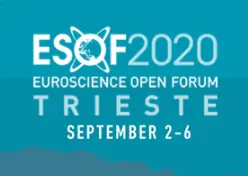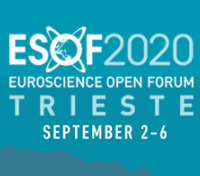-
September 2, 2020 09:00 - September 6, 2020 17:00

The EuroScience Open Forum (ESOF) is a biennial, pan-European, general science conference dedicated to scientific research and innovation. Each conference aims to deliver stimulating content and lively debate around the latest advancements and discoveries in the sciences, humanities and social sciences.
ESOF brings together over 4,500 leading thinkers, innovators, policy makers, journalists and educators from more than 90 countries, to discuss current and future breakthroughs in contemporary science.
ESOF is one of the best opportunities for everyone from leading scientists, early careers researchers, business people, policy makers, science and technology communicators to the general public to come together to find out more about how science is helping us advance today.
COST is proud to participate in ESOF 2020.
The COST President, Prof. Paulo Ferrão, will speak at the session Does science for missions undermine the mission of science? (3 September, 10:15-11:45, room 27B).
COST will host to scientific sessions:
Advancing Health Care with Big data and Machine Learning: Case studies and challenges (4 September, 16:15-17:45, virtual room 2) will focus on how recent technological leaps have prompted an unprecedented volume of available biological and medical data, pleading the development of new ways to store, integrate and analyse millions of data points, for high definition of health and disease processes. The advent of BIG data, coupled with the possibilities offered by machine learning (ML) and AI, are poised to transform medicine (and healthcare). ML offers advantages for processing large amounts of complex data to improve diagnostics, predict outcomes and tailor treatments for a personalized care. Researchers continuously improve the models used for analysing aggregated data from multiple layers for what constitutes a disease: DNA, proteins, organs, organisms, populations.
Some COST Actions addressing this topic are:
- GEMSTONE brings the knowledge arising from high-throughput analysis of available big data in musculoskeletal biology and enables additional genomic discoveries, aiming at translating those into clinical applications.
- ML4Microbiome links microbiome researchers and data-driven ML experts, facilitating the identification of predictive and discriminatory ‘omics’ features, for unlocking its clinical and scientific potential.
- NeuralArchCon addresses the relation between neural architecture and consciousness using advanced statistical modelling, also ML, to form a data driven neuroarchitectural model of consciousness and improve the predictive accuracy of prognoses for disorders of consciousness.
- LEGEND addresses how to manage health issues in children with leukaemia/lymphoma with rare cancer predisposition syndromes, supported by new technologies allowing high-throughput genome-wide genotyping, and the availability of biospecimens from large patient cohorts. Members of these Actions will present recent developments and discuss the advantages and challenges of processing health BIG data using advanced analysis and ML techniques.
Incorporating users in the deployment of Autonomous Vehicles (6 September, 12:00-13:00, room 27A) aims at offering an appraisal of a timely research conducted within the COST Action “Wider Impacts and Scenario Evaluation of Autonomous and Connected Transport” (Wise-Act), a group of 150 experts from 41 worldwide countries. Relevant surveys concerning Autonomous Vehicles (AV) recently conducted in several neighbouring countries will be presented, along with information about AV existing trials and insights on their social and economic effects. Key issues will include AV data processing, business challenges and opportunities, ethical and labour implications, policy and regulatory requirements. This session is also supported by the University of Udine.
Check out the science programme and visit the conference website for further details about ESOF 2020.
---

